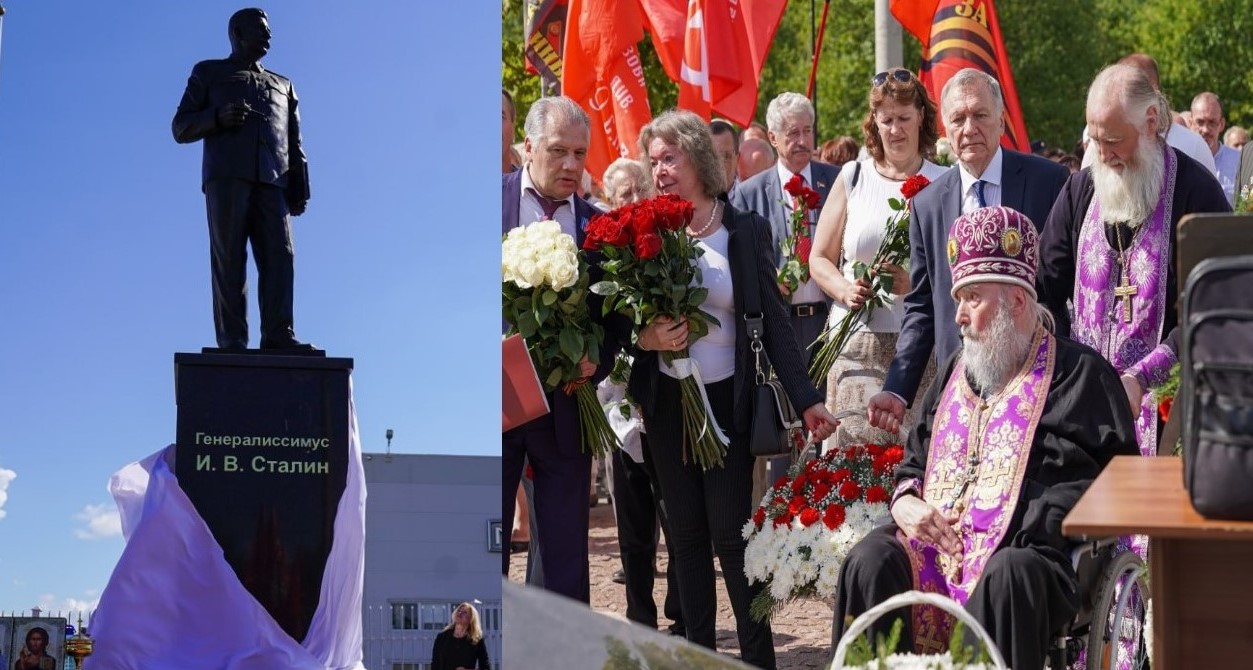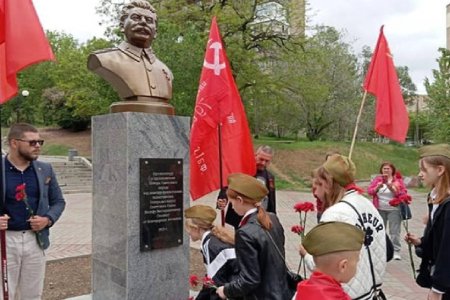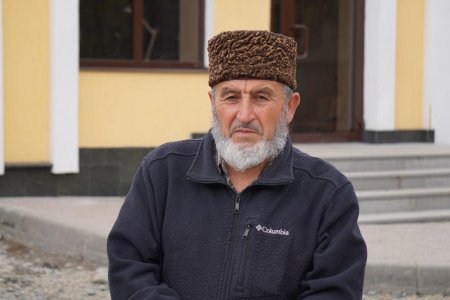
There is a dramatic difference in the attitude expressed by Ukrainians and Russians to brutal dictator and mass murderer Joseph Stalin, with this having become much more pronounced since Russia’s full-scale invasion of Ukraine. While Russian responses in 2022 and 2023 changed little, with almost the same absolute majority having expressed a positive attitude and called him “a great leader” earlier, the number of those in Ukraine with a negative attitude to the Soviet dictator has risen sharply.
The Kyiv Independent Institute of Sociology [KIIS] and the independent Russian Levada Centre have been carrying out such surveys in parallel with each other for many years. The KIIS results this year were published on 3 August in Ukrainian and English, while the Levada Centre’s findings were presented on 15 August in Russian. Russia has been occupying Crimea and parts of Donbas and Luhansk oblasts since 2014, and there are now other parts of Ukraine which are currently under Russian control, with this making it impossible to carry out phone surveys everywhere. KIIS notes, however, that, despite some differences, the general trends can be gauged, and it believes that the results obtained “are still highly representative and allow a fairly reliable analysis of public mood of the population.”
Although the Levada Centre is Russia’s only independent pollster, and, for that reason, has been forcibly added to the notorious register of so-called ‘foreign agents’, it is possible that the survey included respondents in occupied Crimea. It has also become more dangerous under the current Russian regime to express ‘dissident views’, and it is possible that some of those telephoned in this survey might have felt it ‘safer’ to express a more positive attitude to Stalin than they actually have. KIIS notes that even before the Revolution of Dignity (the Euromaidan protests) and Russia’s subsequent seizure of Ukrainian territory, only a minority of Ukrainians (23%) expressed a positive attitude towards Stalin. Then, however, only 37% of respondents said that they had a negative attitude. While the number of those with a positive attitude was falling, it was only after Russia’s full-scale invasion that the difference between dramatic. By the summer of 2022, 64% had a negative attitude, only 5% a positive one. By now, the percentage of those with a negative attitude has fallen to 61%, but only because of a 3% increase in the number of people who say they are indifferent. Only 4% have a positive attitude. Although those who speak Russian at home had a slightly better attitude to Stalin, the above tendencies were the same, with 50% viewing Stalin negatively, only 5% positively.
KIIS notes that there has been a very clear divide between the attitude of Ukrainians and Russians since 2012, with Russians’ positive attitude rising from 28% to 63%. Stalin’s ‘popularity rating’ among Ukrainians during this same period dipped from 23% in 2012 to 4% in 2023.
The Levada Centre’s summary is a little confusing as the point is not merely the 47% in 2023 who stated that they view the dictator “with respect”, but in the overall percentage of those who expressed a positive attitude (63%), In both countries, respondents had to choose one option, with three expressing a positive attitude: “with respect”; “with admiration” and “sympathetically” (i.e. positively). An absolute majority of Russian respondents have viewed Stalin positively since 2019, with the main increase being in the percentage who said that they viewed him “with respect”. By July 2023, 47% viewed him “with respect”; 9% “sympathetically” and 7% “with admiration”. A mere 8% chose one of the three negative attitudes (“with disliking, irritation” – 4%; “with fear” – 2%; “with revulsion, hatred” – 2%.
KIIS does not appear to ask respondents whether they consider Stalin to have been “a great leader”. The Levada Centre gives four dates for when respondents were asked about their attitude to this: April 1992; March 2016; May 2021 and July 2023. Adding together those who “probably agree” and those who “totally agree”, the percentage jumped from 28% in 2016 to an absolute majority of 56% in 2021 (and 54% in 2023).
These trends have been evident for some time. In August 2021, the Levada Centre reported that 48% of respondents had been in favour of erecting a monument to Stalin. What was especially alarming was the dramatic increase in the percentage of young people, aged 18-25. In 2005, only 11% from that age group had been in favour as opposed to 50% in 2021. This is surely linked with the mounting militarization in Russian and Russian occupation educational institutions and a very slanted presentation of Soviet history. It is not that young people approve of Holodomor, the manmade Famine in Ukraine in 1932-33; the Soviet Terror and Gulag; the Deportation of the Crimean Tatar people in 1944; and other heinous crimes. It is that they are either denied altogether, or scarcely touched upon in Russian textbooks.
Earlier in 2021, the Levada Centre found that Stalin topped the list of people named among “the ten most outstanding [выдающиеся) figures of all times and nations”. While nobody received an absolute majority, Stalin was noticeably ahead, being named by 39% of the respondents. Again, the reason that Stalin was foremost in people’s mind (and mentioned, despite the word having clear positive connotations), was probably linked with the concentration, in Russia since Vladimir Putin came to power, on the Second World War and on glorifying Stalin’s role in it. The emphasis on giving a ‘positive’ view of Russian and Soviet history, has led to the current regime’s concealment or attempted justification of the Soviet Union’s collaboration with Nazi Germany during the first two years of WWII.
There have been clear attempts in Putin’s Russia to ‘rehabilitate’ Stalin and to conceal, relativize or deny his crimes. There have also been horrific cases of persecution of historians of the Terror and members of the Memorial Society, including the 15-year sentence which world-renowned historian Yury Dmitriev is now serving on evidently fabricated charges. The reinstatement of Stalin and attempts to deny or distort his crimes have long been evident also in occupied Crimea and Donbas. The above results from the Levada Centre make it worryingly clear how ‘successful’ this has already been, and the new school textbooks totally rewriting Soviet history and presenting outright lies about the war against Ukraine, ‘Russian values’, etc. can only exacerbate this process.
See: Ukraine ‘began the war against Russia’ in Moscow’s official school history textbook



